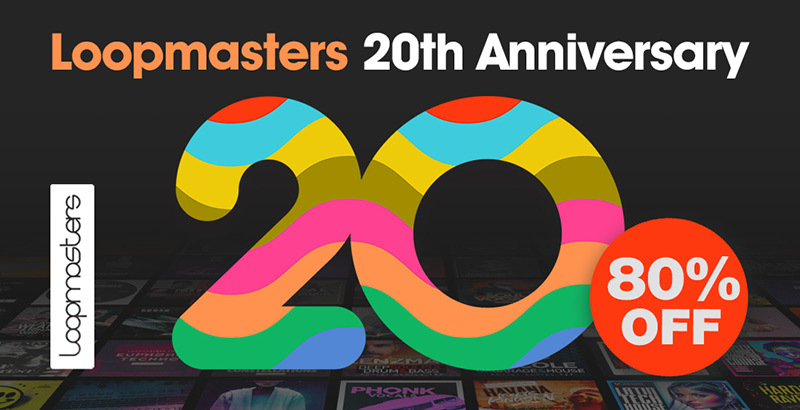Blog
The History of Loopmasters Samples
17 May '2023
Discover what went into making twenty years of Loopmasters no-copyright sounds for discerning producers.
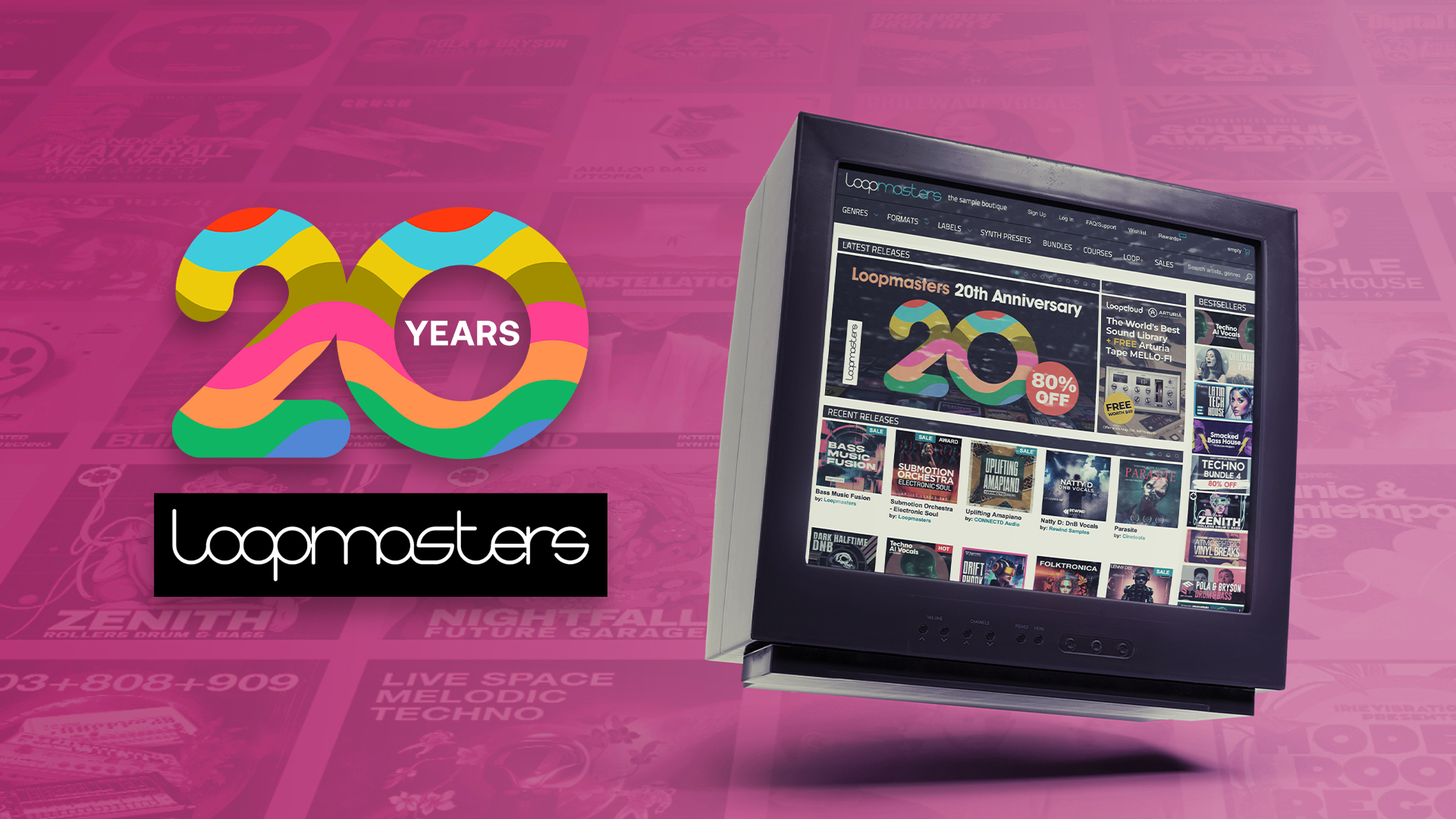
When Loopmasters first appeared in 2003, the wider music and technological landscape was very different than it is today. The music industry was standing at a crossroads, with traditional powers struggling to integrate the new technologies and attitudes that were proliferating everywhere. Although it wasn’t quite in its death throes yet, the CD’s status as the primary mode of music distribution was beginning to eke away amid growing digital dominance.
At the turn of the century, heavy metal giants Metallica filed a now infamous lawsuit against the file-sharing service Napster, a seminal class action that pitted the old ways against the new era. Although the fallout from the lawsuit forced Napster into bankruptcy, their space in the market was quickly filled by Limewire, Kazaa and others, and the message was clear - the digital distribution of music was here to stay.
First generation | Pre-2003
It was in this broken soil that the first seeds of Loopmasters were sown, although to find the true origins of the company we need to travel further back still, to a flat in Polegate in the south of England in the late nineties. The founder and CEO of Loopmasters, Matt Pelling, was at that time a drummer who had recently moved away from his band to pursue a relationship. Bereft of his sticks and skins, he turned to music production to fill the void, buying a small computer and a Turtle Beach sound card and finding that he rather enjoyed frittering around on Cakewalk Express.
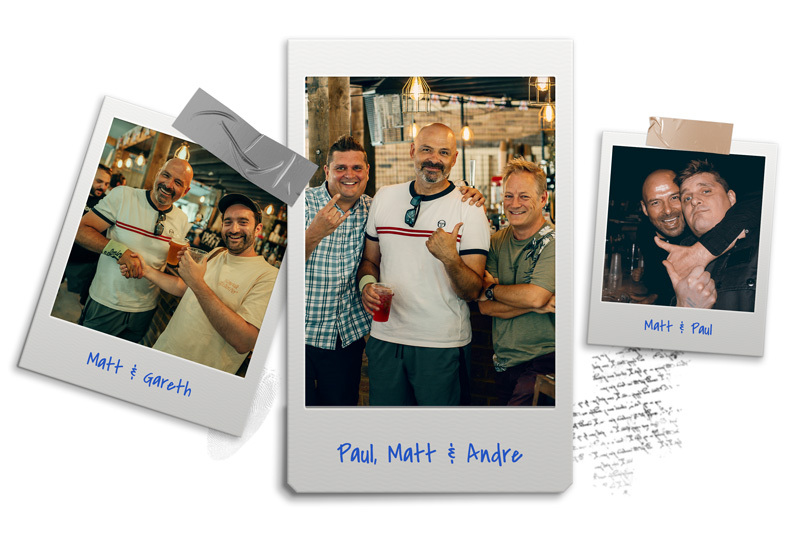
Sample packs existed as a format back then, and companies like Zero G, Time + Space, E-Lab, and Best Service were releasing them as CD-ROMs. The nineties was the era of the hardware sampler, after all, and people preferred to lift from CDs into their Akais or E-mus. Time + Space were the UK’s main distributor of sample packs and music software, so Matt sent them a letter (yes, it was that long ago) and ended up with a marketing job at the company.
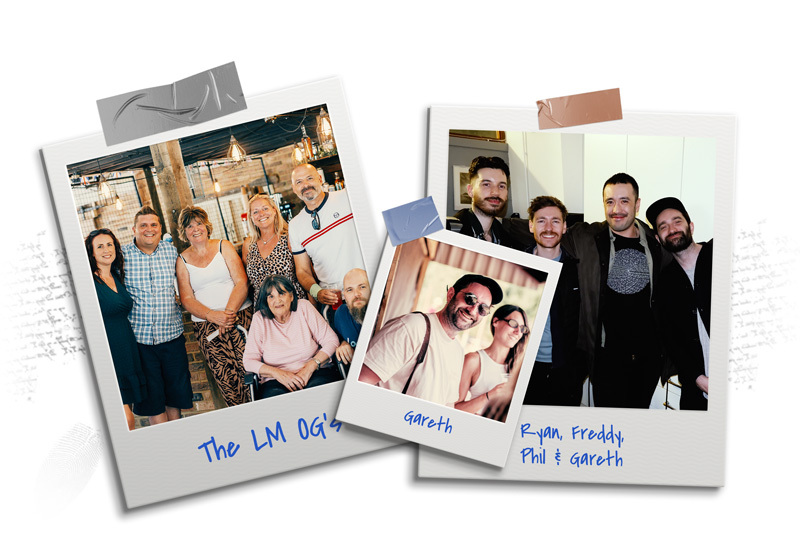
After some successful years learning about the cottage industry of the sample CD world, Pelling left Time + Space and started working on content for sample packs and music libraries with Paul Willard and Andre Touhey, producers he had met from his hometown in Eastbourne. They called their company Beatnik Samples, and released four or five successful sample CDs, with the focus of each being a modular toolkit including both MIDI and audio.
"It sounds really old-school now, but the concept of it was individual hits, loops and MIDI files," reminisces Matt Pelling. "There's nothing impressive about that now, but at the time, it was really flexible – you could enjoy a loop and then substitute the MIDI from it with a different kit. The sounds that you like best combined with the loops that you found most inspiring, you could then customize to make your own sounds. The essence of Beatnik was in flexibility."
Returning from a period of travel, Matt sat down with Paul and they agreed to go full steam ahead building their own sample library, and thus Loopmasters was born.
Second generation | 2003-2015
From the off, Loopmasters committed to releasing high-quality, royalty-free sample packs that contained cutting-edge sounds from every corner of the music world. They started with a series called the “Origin Series“ (still available today), which covered many genres, but each release had a specific theme. A successful release brought enough profit to allow the company to double their efforts for the next, and after a period of steady growth Loopmasters had over thirty sample CDs on the market.
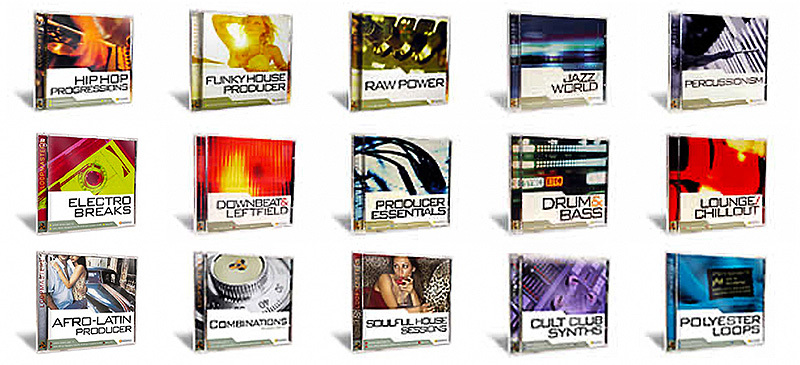
The initial success of the company had provided a platform to build on, but they were still entirely dependent on their distributors. The way around this was to set up a website and give the Loopmasters audience a central sample depot to root through and purchase from, creating a direct-to-consumer model that meant the company wouldn’t need to rely on other parties. In 2006, Loopmasters started to invest in the first digital distribution portal for sample packs online, and in 2007 the first iteration of the website was launched.
"Over time, it became increasingly frustrating that we weren't given the exposure that I felt that we deserved, or even to be on an even keel with a distributor's own products," says Matt Pelling. "The distributors who were also running their own labels would push their own stuff ahead of anyone else's, but I didn't really feel like that's how a distributor should be acting. It came out of the frustration of wanting to make as much money for the people that contributed to our libraries, and to push forward as a label."
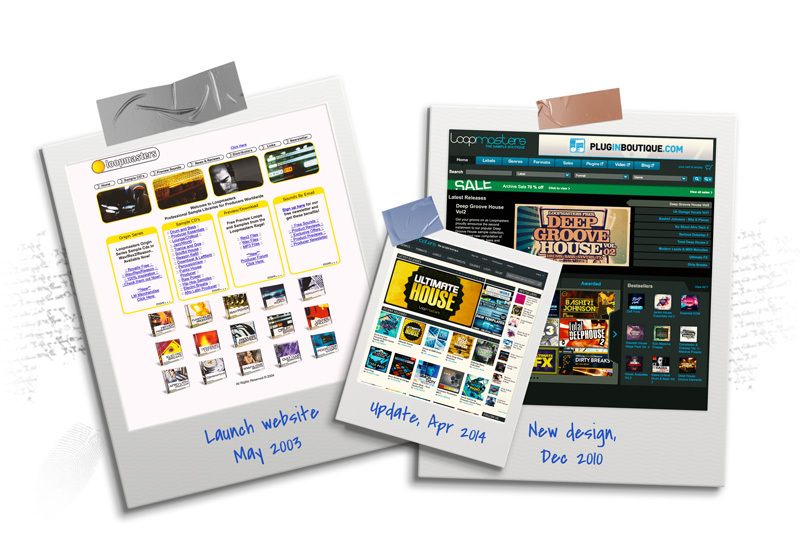
Without the financial pressure of having to press CDs every time a sample pack was released, Loopmasters went from strength to strength. The popular Artist Series sample range was launched in 2008, and by today has over 200 entries. Although the company had entered a new phase, the lessons around quality control that were learned from the sample CD era – where one mistake could lead to a costly re-press – were carried over to continue the ethos that defines the company today.
"I had the idea for the Artist Series from day one," says Matt. "But I didn't feel entitled enough to go and speak to any of my musical heroes to see if they would be prepared to commit their time for an unknown label called Loopmasters. I really felt like we needed to prove ourselves first. Once we had, it gave me the confidence to start speaking to people that I respected and feared in the industry about maybe doing something with us."
The ensuing years saw plenty of rearranging of the Loopmasters furniture: a bigger office, new teams in new locations, and a move to a new Echoplex studio complex in Eastbourne, previously known as ICC studios, where Cliff Richard, The Magic Numbers, Yussef Dayes, and Paul McCartney have recorded. Despite all of the flux, the company continued to innovate and commit to new ideas, expanding their product range to include plugins and virtual instruments. The Patchworx series, the blueprint for modern synth preset collections, was born in 2011, and a sleek new website followed a few years later in 2014.
Plugin Boutique and Label Partnerships
In the late noughties, Loopmasters started taking on independent sample labels and distributing their packs. Being able to provide distribution infrastructure to other brands meant a growth in the choice of samples and a growth in the overall user base, and the years to now have seen over 90 independent labels get onboard. You can read more about Loopmasters’ label and charity partnerships in our article, 20 Years of Working with Top Labels.
Matt Pelling: "It was a very important thing that if we were going to take on board the responsibility of distributing any third parties, that we would really focus on it and feel like we were their agent, their manager… And more than that, we wanted to add marketing into the mix as well. It's not that the distributors didn't do some marketing, but it always felt like they would do the absolute minimum to stop you going somewhere else, rather than actually develop labels and procure talent."
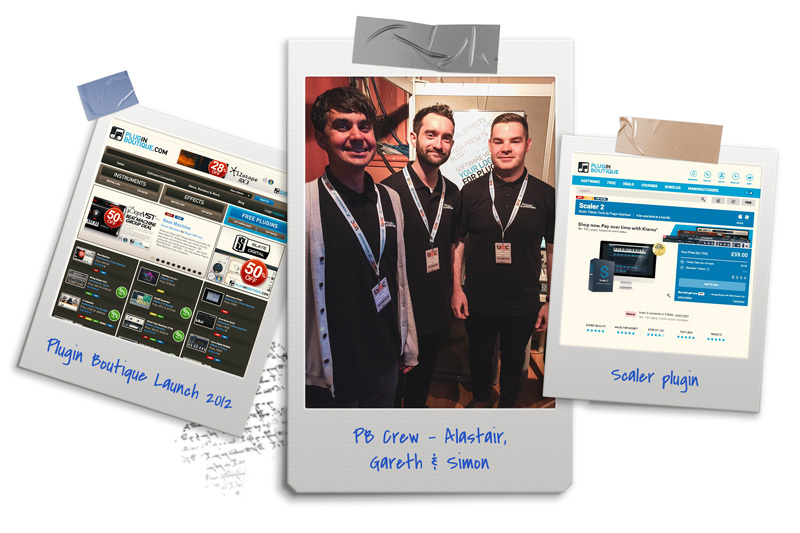
With the success of distribution for other sample libraries, a question naturally followed: what if Loopmasters could do the same for plugin developers? In 2012, Plugin Boutique was launched with the slogan One login for all your plugins, aiming to solve the problem of a multitude of developers spreading the attention of producers all over the web. Plugin Boutique may have been conceptualized to help small plugin developers, but eleven years on, it plays host to manufacturers both large and small.
Milestones in PIB’s history include the launch of their own plugin range, the ‘legendary’ one-dollar deal on AIR Music Technology’s Xpand!2 plugin, the launch of the widely successful Scaler, and the rise of the FWAP – Free With Any Purchase – deal. You can read a more in-depth history of Plugin Boutique in their own Ten Years of Plugin Boutique article.
Third generation | 2016 to now
As the Loopmasters library grew, it soon became apparent that the abundant choice that producers had was becoming stifling. Choosing the right samples from an enormous collection of sounds is no mean feat, and unless you knew exactly what you were looking for, it was becoming too time-consuming. The creative process is a fragile thing, and anything that funnels time away from actually making music can kill off the vibe entirely.
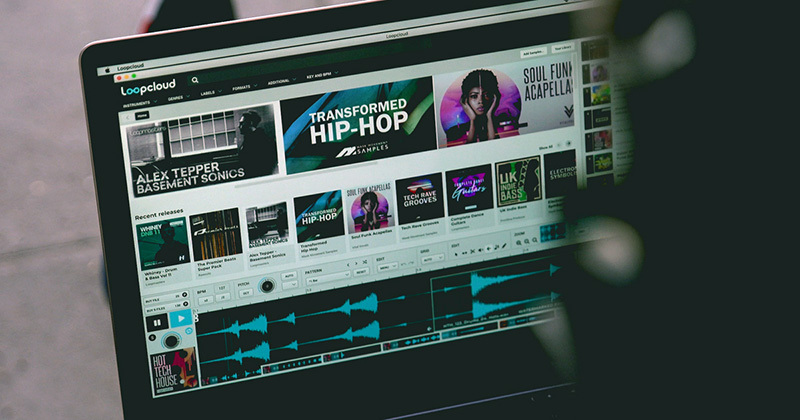
Recognising the need for a more integrated solution, Loopmasters launched the Loopcloud platform in 2017, which allows users to browse and audition all samples, MIDI files and presets, in tempo and key with the DAW project. Users could simply drag and drop samples directly from the app into their DAWs. The platform was a game-changer for the industry, as it unified the gargantuan Loopmasters catalogue of samples and presets into a DAW-synced music-making tool that connected producers like never before.
"I realized that some of our best customers now had something like 60 or 70 sample collections," says Matt. "We were trying to facilitate an inspirational creative journey for producers, but I realized that actually, maybe we were starting to create a problem for them rather than a solution: now when they started a track, they had to listen to thousands of snares and bass sounds or whatever. Actually they were spending half their time or more just listening to sounds rather than making music. The first iteration of the Loopcloud concept wasn't around creating a subscription platform – it was to create a utility that enabled Loopmasters customers to access what they'd bought from Loopmasters much more easily. Everything you've bought is available for free inside Loopcloud, and you're going to be able to just connect it with your DAW in time and in key."
Of course, Loopcloud became much more than just a utility, now offering purchasing of new samples and packs, as well as sound matching, sample editing, effects, and much more, right within the DAW-connected software.
In the same year, Loopmasters also acquired the online music production school, ProducerTech. This acquisition allowed Loopmasters to expand its educational offerings and provide a more comprehensive service to producers. The academy offers courses taught by well-known producers such as MJ Cole, D.Ramirez, and Dave Seaman.
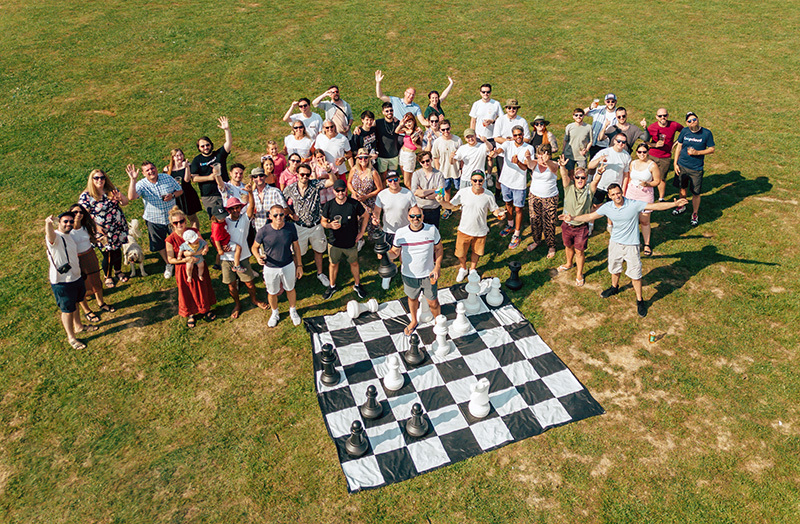
Having bought the Beatport Sounds label in 2019, a strategic partnership was birthed between the two companies. Loopmasters’ catalogue has been integrated on the Beatport website since then, and things turned tail when Beatport eventually acquired Loopmasters at the tail end of 2020, forming a coalition alongside Plugin Boutique, LabelRadar and Ampsuite, known as the Producer Group. With this exciting alliance, the adjacent neighbourhoods of DJs and producers have a one-stop shop for every step of the music-making process.
20th Anniversary Bundle
To celebrate two decades of sounds we have trawled through the sales figures and customer ratings to find out the top collections across multiple genres, and placed them all into an epic value-for-money deal. With 21Gb of loops and sounds at an incredible 80% discount, no matter what genre you produce we are convinced there will be plenty of exciting sounds for you to discover.
So before we pop off and open the bubbles, we want to take this opportunity to raise our hats to all our Loyal Loopmasters fans, Loopcloud aficionados and anyone who is addicted to making music as much as we are, we salute you!. Here’s to the next 20! For a free lite version of this collection come and say 'Hi..' on our Instagram page Loopmasters, Loopcloud.
FAQs
When was Loopmasters founded?
Loopmasters began in 2003
Did Loopmasters start by selling sample CDs?
Yes, originally Loopmasters offered sample CDs. They moved into online sample downloads in 2007 with the release of their online download portal.
Is Loopmasters royalty-free?
Yes, with a Loopcloud membership you can use all four million + royalty-free samples in the Loopmasters library in any commercial songs you like.
